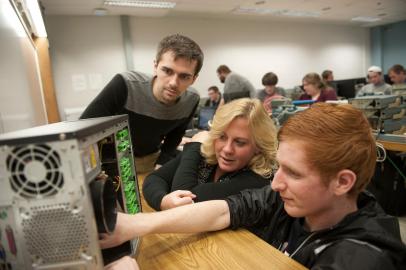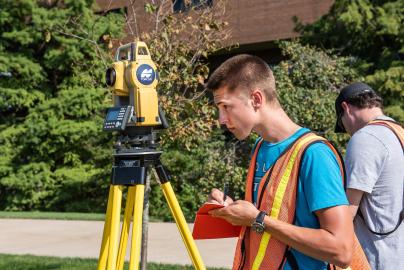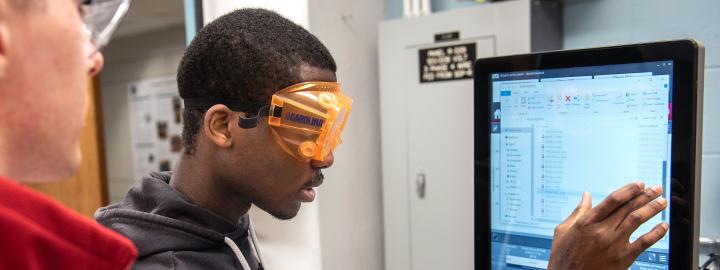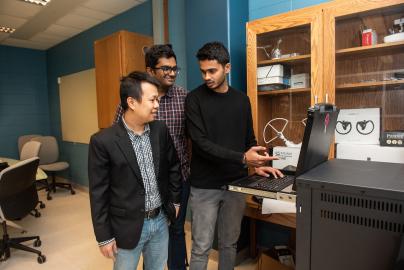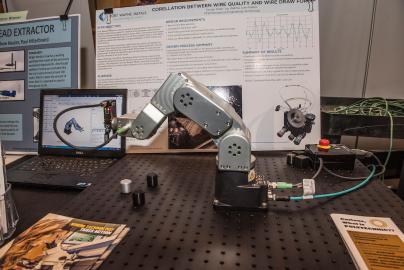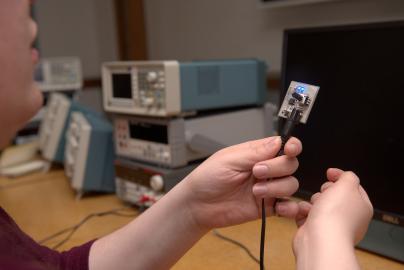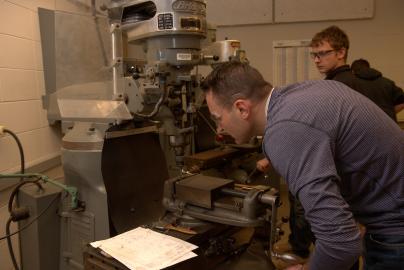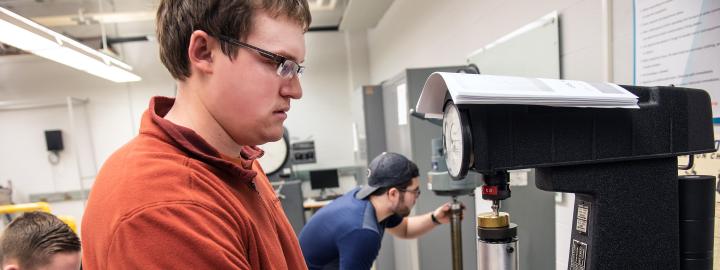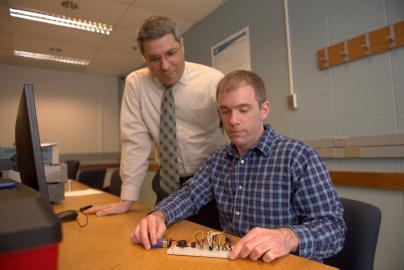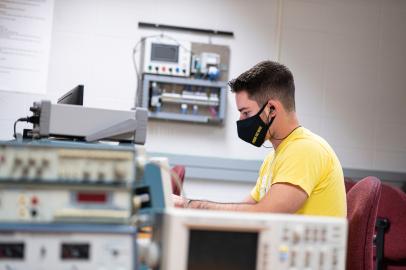
Polytechnic Programs
Tinkerers, builders, and experimenters—your curiosity can change the future.
Every new gadget began as an innovative idea, a fleeting curiosity that became a perpetual thought that begged to be brought to life. Big and small. Recreational to life changing. It all starts with that spark of curiosity.
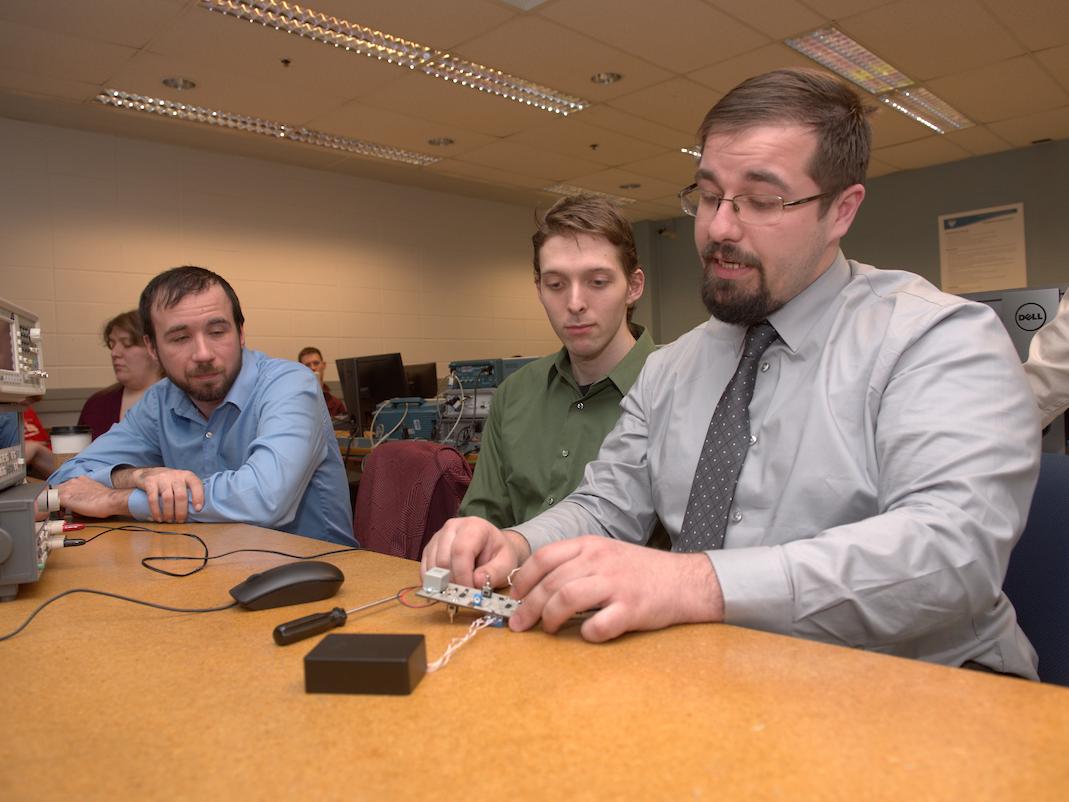
Electrical Engineering Technology (B.S.)
Have you ever wondered how your microwave works? What about GPS? If you major in electrical engineering technology, you’ll learn how to design, develop, and test computers, communications equipment, medical monitoring devices, and navigation equipment.

Program
Highlights
Program Highlights
- The ability to apply theories and principles of math and science
- Experience with designing systems, components, and processes for engineering technology problems
- Experience conducting, analyzing, and interpreting experiments
- Support from the Mastodon community
- A prestigious Purdue degree
career and salary data
How far will you go?
General labor market and salary data are provided by Lightcast via O*NET and may not represent the outcomes experienced by Purdue Fort Wayne graduates in these programs. Purdue Fort Wayne graduates in these programs may earn salaries substantially different or less than the amounts listed. Salary and employment outcomes vary by geographic area, previous work experience, education, and opportunities for employment that are outside Purdue Fort Wayne’s control. Purdue Fort Wayne does not guarantee employment placement, salary level, or career advancement.
Accreditation
The Electrical Engineering Technology degree is accredited by the Engineering Technology Accreditation Commission of ABET.
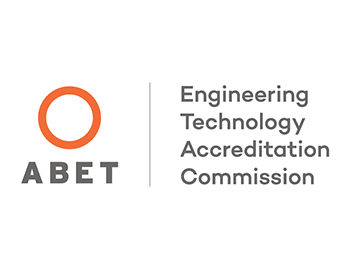
Program Educational Objectives
- Demonstrate the knowledge and ability to function as a member of a technical staff who can use current industrial practices and design procedures for development, implementation, and project management of electrical/electronic(s) and/or computer-based software and systems
- Demonstrate readiness for career advancement, promotion, and mobility
- Demonstrate continuous learning, either on-the-job or in graduate school
- Demonstrate the ability to function as a contributing member of society and the profession
- Demonstrate effective teamwork skills and recognize ethical responsibilities
Learn more about student outcomes and graduation and enrollment data here.
- Aerospace and Electronic Systems Engineer
- Communications Engineer
- Computer-Controlled Equipment Specialist
- Control Systems Specialist
- Electrical Engineer
- Electrical Engineering Technician
- Industrial Electronics Specialist
- Medicine or Biology Engineer
- Robots and Automation Engineer
